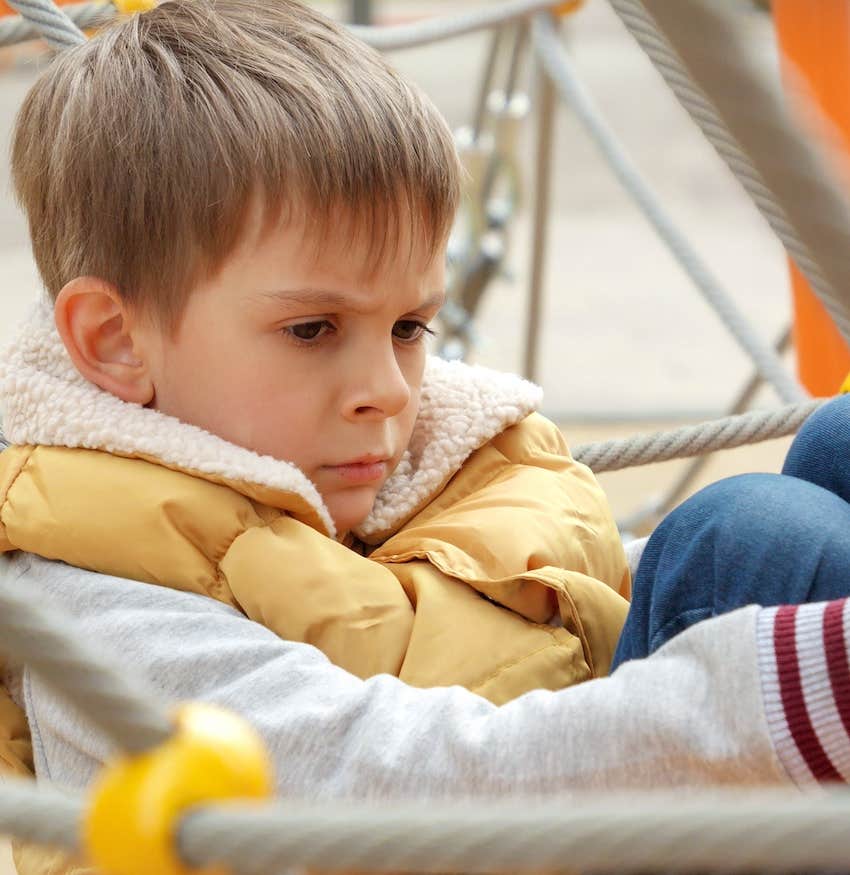If Your Parents Taught You These Skills Growing Up, You're Probably A Very Calm Adult Now
Kids need to learn these things to exist in the real world as calm adults.
 Sergey Sokolov | Unsplash
Sergey Sokolov | Unsplash Like most humans, kids get angry and when young children get angry, they don't always know the right way to let off steam. It leaves the parent with a heated child who's having a wicked temper tantrum. So, how do you get your kid to express their anger positively?
Children struggle with letting out anger because they don't understand what is happening and why it is happening, for example, if their parents are going through the divorce process. Young children don't understand divorce. It's complicated enough for adults to grieve the end of a marriage, much less a toddler or preschooler.
So children need help expressing and handling their emotions through play therapy. You can teach your kid these skills to deal with anger without raising an actual ruckus — which will result in a child who grows up to be a very calm adult.
If your parents taught you these skills growing up, you're probably a calm adult now:
1. Count down to calm down
It's tough to not let the impulse to scream, yell, or what have you when you're angry but if you teach your little one to count down when in the heat of a meltdown it might give your kiddo some time to calm a little before making a bad choice, as explored by a study in Early Child Development and Care.
Countdown so you can calm down. It's easy to remember and kind of catchy!
2. Ask for a hug
 Tijana Moraca via Shutterstock
Tijana Moraca via Shutterstock
If your junior is ready to blow his top off, tell him that when he's mad it's OK to ask for a hug.
This may seem strange to you, but we started this with our daughter and now I see that most of the time when she is angry, there is some sadness underneath. A hug makes her feel better even if she's not going to get her way or is upset with me or her dad.
The more she started asking for this, the quicker her meltdowns ended and the faster the tears and squeezes came on. And while no mom wants her child to cry, usually the tears are a sign of getting out all those yucky feelings your kiddo is struggling to deal with and soon enough, there's peace again.
Psychotherapist Chamin Ajjan explained the benefits of hugs for kids, "There are several benefits to hugging your child including relieving stress, elevating both of your moods, boosting their self-esteem, building trust, and reinforcing a sense of safety. Hugging helps develop confident and well-adjusted little beings. What a gift to give them! Now that’s love!"
3. Engage in quiet activities
Was it right for your child to hit you, throw something, or say rude words? Nope, but trying to discipline your child in the moment the fire is raging is an exercise in futility.
Instead, when your child is getting angry or already starting to throw the punches so to speak, direct them to a quiet activity like reading a book or doing a puzzle.
The other day my daughter had a fit. She hadn't had a nap and it was an extremely hot and long day. I put her on the couch but she jumped off and went for a puzzle. Instead of barking for her to sit in a timeout, I let her do her puzzle quietly while we both cooled off and approached her a few minutes later to discuss what had happened.
An article in the International Journal of Education and Practice suggested that encouraging your child to do a quiet activity before a tantrum happens can help nip a developing problem in its bud.
4. Sing a song or whistle a tune
When your child is fuming, encourage him to sing a little song or whistle a tune. A study in the Psychology of Music suggested it's hard to be angry if you're singing Twinkle Twinkle Little Star.
5. Squeeze something
 Kyrylo Ryzhov via Shutterstock
Kyrylo Ryzhov via Shutterstock
When you're mad, sometimes you feel like wringing someone's neck. Instead of encouraging choking someone, give your kid a doll or stress ball to squeeze or offer a pillow to punch.
Hey, now and then we all have a little pent-up fuel that needs to be released. At least this way no one is harmed besides some pink rubbery squeezy ball!
6. Talk with 'I' statements
Encourage your child to verbalize his anger with "I statements" like "I feel angry when you won't let me do X," or "I feel angry when X won't play with me," etc. Verbalizing the emotion is healthy!
Family coach T-Ann Pierce recommended teaching children to use "I statements" begins with the parent modeling the behavior, "It is easy to fall into the "you" trap as a parent. The problem is when you focus too much on "you," you rob kids of the opportunity to take responsibility for themselves and their actions. By making the shift to "I" statements, kids can begin to learn how their actions impact others. This kind of language gives them respectful opportunities to change."
Don't teach your children these tricks when they're already mad. Tell them after they've blown a gasket or when you're simply talking to your little one about feelings, which you should do often. Emotional intelligence is important!
Here are a few things I keep in mind when dealing with my kiddo when she's fuming:
- I offer empathy for how she is feeling. She may be mad that I am not buying her a doll, but I empathize with how she feels. This doesn't mean I will then give in but that I acknowledge how she feels.
- Consequences must be realistic and carried through. There have been times in which I hear myself rattle off words and after thinking, there's no way I will stick with that consequence. I strive to always give a realistic consequence that I can carry out!
- Stepping away is sometimes a necessity . . . for parents! When a kid is lashing out it's not fun. Stepping away for your timeout is acceptable for your sanity. Just don't leave your kid alone in a shopping mall. OK?
We all get angry from time to time. Teaching our kids how to handle their ugly angry side is part of our job. Emotions don't come with a handbook.
Laura Lifshitz writes about divorce, relationships, parenting, and marriage for YourTango, The New York Times, Women’s Health, Working Mother, and Pop Sugar.

